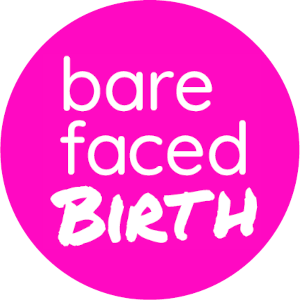Tips on How to Time Your Contractions in Labour
Timing your contractions can make your thinking part of the brain switch on so its best to try not to time your contractions too early during early labour as we want to avoid any stress or anxiety on them as its not great for oxytocin release. If all is well is best to try and continue and carry on as normal during early labour. Rest and sleep as much as possible!
I regret not resting enough during early labour. As soon as my contractions started I got up ready and dressed at 3 am thinking “it won’t be long now”. Although it was lovely and relaxing and calming environment, I should have tried to go back to sleep and bank some rest for later!
Timing your contractions during labour may help tell you how far along you are in labour as they become more regular and more of a pattern. It can also help to indicate when to call and contact your midwife to come to you for home births or get going to the hospital. You can also absolutely not time your contractions and trust and go with how you and your body is feeling and go with the sensations if this is something that you would think better supports you. Its all about what you feel comfortable doing and what works for you.
THINGS YOU CAN DO IN EARLY LABOUR
Watch funny films, eat lots of yummy food, rock on your birth ball, keep mobile, go for a walk, shower or bath can be really lovely is a natural form of pain relief. Eat lots of yummy snacks and food if you feel like it (its important to keep your energy levels uo) Anything that can help to boost our oxytocin levels and is going to make you feel good.
Snacks
Make sure you have lots of your favourite snacks ready to enjoy & help boost your oxytocin.
WHEN TO TIME YOUR CONTRACTIONS
You can start time your contractions when it feels right for you or as your contractions/surges become more regular and they start to feel more intense and closer together you may want to time them. Try to avoid timing them to early to minimise any stress or too much focus on them.
If you have decided to time your contractions its best that your partner or whoever is there with you to time them for you. This means you can concentrate on working on getting into that lovely birth head space bubble and staying there.
HOW TO TIME YOUR CONTRACTIONS
When it comes to keeping track of them you can use a couple of methods you can use:
Old school pen & paper watch/stop clock on your phone
Apps that time them for you.
If your partner is writing your contractions down they will need to write down the time of when a contraction/surge starts and the end time of that contraction/surge. When the next contraction/surge begins, write down again when it first started and when it ended.
You are looking for the duration/length of each contraction/surge and how far apart they are. The difference between the ending of one contraction/surge and the start of your next contraction/surge tells you how far apart they are.
A good rule of thumb is 4 contractions/surges in 10 mins lasting 1 minute consistently, for second time birthers it may be 3 surges in 10 mins. Your midwife, hospital or care provider will ask how regular you contractions and when they first started are to try and establish how far along in labour you are. Remind your partner to have this to hand when they contact your midwife or hospital if you are timing your contractions.
Another option of timing your contractions is using an app on your phone which helps to time them for you and some indicate when you are in active labour and when it’s time to contact or go to the hospital or contacting a midwife if you are having a home birth. Some tens machines, if you are using one have a timing app included. It is best that your partner has the app on their phone so again you can stay in that lovely head space birth bubble!
Breathing
Breathing in for 7 and out for 7 during a contraction can help as a distraction whilst sending lots of oxygent down to your Uterus.
What if my contractons start and Stop?
It is quite common in early labour for your contractions to stop and start which is why we say try not to time contractions to early until they become more prominent as we want to minimise any stress hormones which in turn will block your oxytocin and birth hormones.
If you find your labour is stopping and starting try changing position, going for a walk and watching something funny – anything that can help you to feel calm and relaxed.
Try some breathing techniques to help calm your nervous system and help you to relax. Get your birth play list on! Having a birth play list ( I recommend having at least 3!) is a must have! Studies have shown that listening to music can help reduce anxiety levels by helping you to relax and it may even offer some pain management relief. Researchers have also suggested that playing music helps to stimulate the pituitary gland inside your brain which induces endorphins.
If you have done a hypnobirthing course use your hypnobirthing techniques and tools to help you stay in that beautiful birth bubble!


